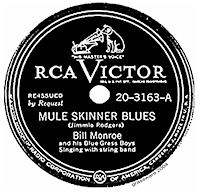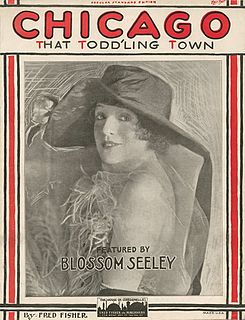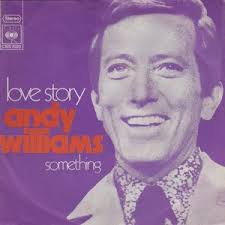Certifications
| Region | Certification | Certified units/sales |
|---|---|---|
| United States (RIAA) [6] | Gold | 500,000 |
| ||
| "The Good Life" | ||||
|---|---|---|---|---|
| Single by Tony Bennett | ||||
| from the album I Wanna Be Around... | ||||
| B-side | "Spring in Manhattan" | |||
| Released | April 1963 | |||
| Recorded | December 19, 1962 [1] | |||
| Studio | Columbia 30th Street Studio, New York City [2] | |||
| Genre | Pop | |||
| Length | 2:14 | |||
| Label | Columbia | |||
| Songwriter(s) | Sacha Distel, Jack Reardon [3] | |||
| Producer(s) | Ernest Altschuler | |||
| Tony Bennett singles chronology | ||||
| ||||
"The Good Life" (originally "La Belle Vie" in French) is a song by Sacha Distel with French lyrics by Jean Broussolle, published in 1962. It was featured in the movie The Seven Deadly Sins .
Billy Eckstine: "Now Singing In 12 Great Movies" is a 1963 studio album. It was arranged by Billy Byers, conducted by Bobby Tucker, and produced by Quincy Jones.
The song is best known in the English-speaking world via a 1963 recording by Tony Bennett with English lyrics by Jack Reardon. In the US, it was a number 18 hit on the U.S. pop singles chart, and number 7 on the Middle-Road Singles chart. [4] Outside the US, "The Good Life" rose to number 27 on the UK Singles Chart. [5] "The Good Life" became one of Bennett's staple songs, and was featured on four of his top-selling albums, including 1994's MTV Unplugged: Tony Bennett and 2006's Duets: An American Classic , the latter featuring Billy Joel. Bennett also named his 1998 autobiography after the song. He continued to perform the song live and did so at his final concerts, at Radio City Music Hall, aged 95.
| Chart (1963) | Peak position |
|---|---|
| UK Singles (The Official Charts Company) | 27 |
| US Billboard Easy Listening | 7 |
| US Billboard Hot 100 | 18 |
| Region | Certification | Certified units/sales |
|---|---|---|
| United States (RIAA) [6] | Gold | 500,000 |
| ||
"If I Ruled the World" is a popular song, composed by Leslie Bricusse and Cyril Ornadel, which was originally from the 1963 West End musical Pickwick.
The Tornados were an English instrumental rock group of the 1960s that acted as backing group for many of record producer Joe Meek's productions and also for singer Billy Fury. They enjoyed several chart hits in their own right, including the UK and U.S. No. 1 "Telstar", the first U.S. No. 1 single by a British group. Today Dave Watts has his own version.

Alexandre "Sacha" Distel was a French singer, guitarist, songwriter and actor who had hits with a cover version of "Raindrops Keep Falling on My Head" in 1970, which reached No 10 in the UK Charts, "Scoubidou", and "The Good Life". He was made Chevalier (Knight) of the Légion d'honneur in 1997. He had also scored a hit as a songwriter when Tony Bennett recorded Sacha's song for The Good Life in 1963. It peaked at #18 on Billboard's Hot 100 chart and Top 10 on the Easy Listening chart.
"Smile" is a song based on an instrumental theme used in the soundtrack for Charlie Chaplin's 1936 film Modern Times.

"Rags to Riches" is a 1953 popular song by Richard Adler and Jerry Ross.
"The 'In' Crowd" is a 1964 song written by Billy Page and arranged by his brother Gene that was originally performed by Dobie Gray on his album Dobie Gray Sings for "In" Crowders That Go "Go-Go". It appeared on an episode of Dick Clark's Rock, Roll & Remember featuring the last week of November 1964, the month that Gray's rendition was released.
"Without a Song" is a popular song composed by Vincent Youmans with lyrics later added by Billy Rose and Edward Eliscu, published in 1929. It was included in the musical play, Great Day. The play only ran for 36 performances but contained two songs which became famous, "Without a Song" and "Great Day".

"Mule Skinner Blues" is a classic country song written by Jimmie Rodgers and George Vaughan. The song was first recorded by Rodgers in 1930 and has been recorded by many artists since then, acquiring the de facto title "Mule Skinner Blues" after Rodgers named it "Blue Yodel #8".
"Blue Velvet" is a popular song written and composed in 1950 by Bernie Wayne and Lee Morris. A top 20 hit for Tony Bennett in its original 1951 version, the song has since been re-recorded many times, with a 1963 version by Bobby Vinton reaching No. 1.

"For Once in My Life" is a song written by Ron Miller and Orlando Murden for Motown Records' Stein & Van Stock publishing company, and first recorded in 1965.

"Let It Be Me" is a popular song originally published in French in 1955 as "Je t'appartiens" interpreted by Gilbert Bécaud. It became popular worldwide with an English version by the Everly Brothers and later with the duet by Betty Everett and Jerry Butler.
"Young and Foolish" is a popular song with music by Albert Hague and lyrics by Arnold B. Horwitt, published in 1954.

"Chicago" is a popular song written by Fred Fisher and published in 1922. The original sheet music variously spelled the title "Todd'ling" or "Toddling." The song has been recorded by many artists, but the best-known versions are by Frank Sinatra & Ben Selvin.

"(Where Do I Begin?) Love Story" is a popular song published in 1970, with music by Francis Lai and lyrics by Carl Sigman. The song was first introduced as an instrumental theme in the 1970 film Love Story after the film's distributor, Paramount Pictures, rejected the first set of lyrics that were written. Andy Williams eventually recorded the new lyrics and took the song to number nine on Billboard magazine's Hot 100 and number one on their Easy Listening chart.
"Tonight" is a song from the 1957 musical West Side Story with music written by Leonard Bernstein and lyrics by Stephen Sondheim. It was published in 1956.
"Ain't Nobody's Business" is a 1920s blues song that became one of the first blues standards. It was published in 1922 by Porter Grainger and Everett Robbins. The song features a lyrical theme of freedom of choice and a vaudeville jazz–style musical arrangement. It was first recorded, as "'Tain't Nobody's Biz-ness if I Do", in 1922 by Anna Meyers, backed by the Original Memphis Five.
"Anything Goes" is a song written by Cole Porter for his musical of the same name. (1934). Many of the lyrics include humorous references to figures of scandal and gossip from Depression-era high society. One couplet refers to Samuel Goldwyn's box-office failure Nana starring Anna Sten, whose English was said to be incomprehensible to all except Goldwyn.

"Message to Michael" is a song written by Burt Bacharach and Hal David, that has been a hit for several different artists under several different titles. The song was first recorded as "Message to Martha" by Jerry Butler in 1962. In 1964, singer Lou Johnson had a minor US hit with the song, with the title "Kentucky Bluebird". British singer Adam Faith also recorded the song as "A Message to Martha " in 1965, and had a substantial hit with it in the UK, reaching No. 12. Exactly the same recording was issued in Australia as "Message to Martha", where it was a No. 15 hit for Faith. In the United States, Dionne Warwick's version, titled "Message to Michael", was a top ten hit there in 1966.
"Won't Somebody Dance with Me" is a song written by Lynsey de Paul in 1973, which was awarded an Ivor Novello Award in 1974. Her original version of the ballad made the UK, Irish and Dutch Top 20s, and the song was featured in Michael Winner's remake of the film The Big Sleep, The Muppet Show, and the 1970s version of the New Mickey Mouse Club.

"I Love How You Love Me" is a song written by Barry Mann and Larry Kolber. It was a 1961 Top Five hit for the pop girl group The Paris Sisters, which inaugurated a string of elaborately produced classic hits by Phil Spector. Bobby Vinton had a Top Ten hit in 1968 with a cover version. The song has been recorded by many other artists over the years.